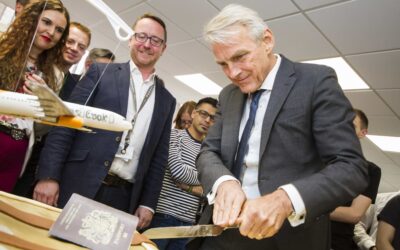With the sad news about Thomas Cook hitting the headlines this week, and our relationship with Europe as rocky as ever, it feels like dark times for the travel industry. But that makes it more important than ever to turn these threats around and consider how best to future-proof tourism products, writes Ian Thomas of NGI Solutions.
It’s probably harder to think of an industry that hasn’t been disrupted than one that has. From ready meals to fresh ingredient delivery services, and HMV to Spotify, how we consume products and services is constantly evolving.
I wouldn’t blame you if a certain Sherlock quote springs to mind here – it doesn’t take a rocket scientist to see the seismic shifts taking place across consumer industries.
And yet many key operators within the travel sector have continued to offer the same experience for many years. A chat in store with a sales rep, a brochure and a package holiday. Of course, you can access this online as well, but it’s the same product packaged in the same way – just delivered digitally.
So how can the sector protect itself from stagnating and losing more trusted brands in the process? I believe there are some very simple questions and approaches travel bosses should consider to ensure sustainability in a turbulent market.
Are customers being asked meaningful questions?
We’re always filling in customer satisfaction questionnaires. They might allow travel agencies to compare brands offering more of the same and that provides some useful insight, but it doesn’t tell the whole story. The sector needs to go beyond like-for-like competition and understand what else might be tempting customers away. It’s not just about Thomas Cook vs Tui, but about Thomas Cook vs road trips, micro-gaps and Airbnb. Customers need to be asked much broader questions in order to gain meaningful insight that will help the sector innovate.
Where are the breaks in the chain?
Just as travel companies need to speak to their current customers to develop and protect that base, they also need to learn more about why some customers don’t complete the booking journey. Where are they going? What are they booking? How are they booking? And, most importantly, why?
Who are the industry’s competitors these days?
The travel industry’s competitors don’t necessarily look and act the same. They don’t need to be tour operators offering package holidays. Basically, however people spend their leisure time needs to be considered as competition. Is it a yoga retreat? Is it volunteering abroad? Is it co-created by a group of friends – one taking responsibility for the travel, one for the accommodation and one for the activities?
What’s topical?
With Greta Thunberg making the headlines, and millennials saying that they work for purpose over huge pay checks, what motivates travellers is shifting. Taking flights might be something that younger groups now seek to avoid. Instead, maybe they need help in bicycle rental for domestic travel. Or maybe they want an eco-break where they can have fun while making a contribution to the protection of the planet. These kinds of aspirations don’t fit neatly in the package holiday bracket.
Find the positives in disruptors
Airbnb has taken its share of blame for a number of ills in the travel world – from over-tourism to falling occupancy rates and quality issues to name a few. But the traditional travel sector can also learn from these business models.
Airbnb doesn’t have to be the enemy. And the demand for alternatives like micro-gaps can provide opportunities for key travel companies to evolve. Rather than seeing the threats, they should find the positives and look for new opportunities to collaborate or try something completely new.
Successful models put consumer choice ahead of business operation, reacting to trends and needs. These businesses are constantly horizon scanning for the next opportunity – something all businesses, regardless of sector, could learn to do more of.
Ian Thomas has worked in tourism research for over 20 years, managing research and insight projects for a variety of destinations across the UK. He is Associate Director with insight-led marketing agency, NGI Solutions, sits on the VisitEngland research group and has presented at several Tourism Management Institute conferences.














